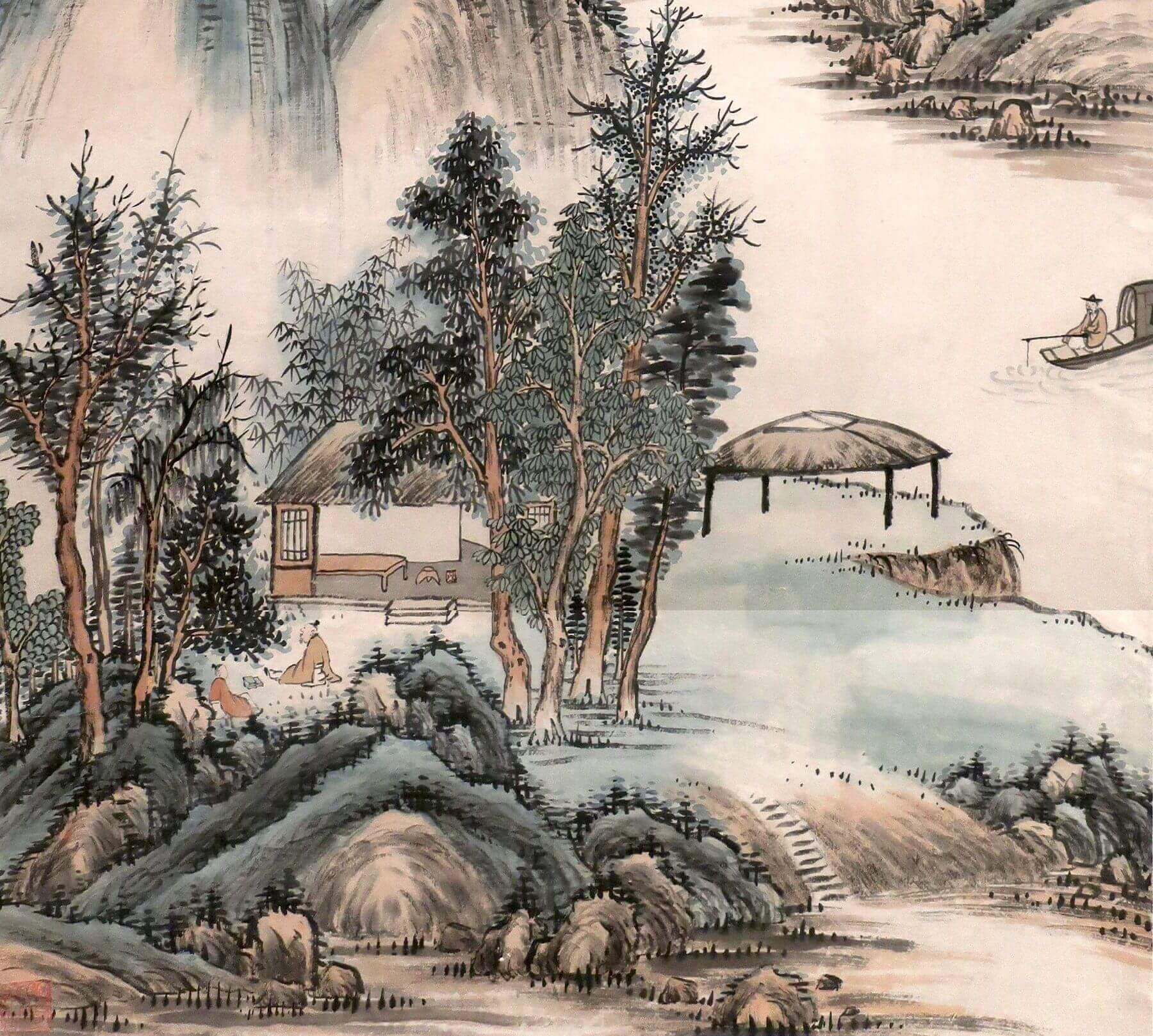Life
Deng Xi (c. 545 - 501 BCE) was a lawyer from the state of Zheng, where he also served as an official. He is said to have written two works, but neither of them survive.
Deng Xi is chiefly famous for his unsettling approach to argument. He was famous for being able to ’turn wrong into right and right into wrong,’ and according to The Annals of Lü Buwei, he didn’t recognise any fixed standard for evaluating arguments. This made him formidable in court: untethered from questions of objective truth or falsity, his powers of persuasion often won the day, whatever the details of the case. As a result, Deng Xi became a popular lawyer. Legend has it that he would charge his clients a coat for major legal cases, and leg-wear for minor legal cases. He quickly developed such an extensive wardrobe that he became rich.
Letters and loopholes
Deng’s great rival was the prime minister Zi Chan, who was committed to laws and punishments, and who is often identified as a legalist (see also Guan Zhong).
In one famous story, Zi Chan issued a law that forbade the public posting of open letters criticising the Duke of Zheng. Deng Xi responded by instead delivering his critiques of the ruler direct to his intended audiences. Zi Chan changed the law to forbid the direct delivery of political critiques. So Deng Xi resorted to indirect delivery, smuggling in the letters by enclosing them with other deliveries. As the Annals of Lü Buwei put it, ‘The government ordinances were inexhaustible, but his devices to evade them were equally inexhaustible.’
The traditional accounts say that Deng Xi’s enthusiasm for causing legal havoc led eventually to his execution. And yet other accounts suggest that the philosopher was unfairly maligned because after Deng died, the ruler of Zheng adopted his legal code.
Philosophy
It would be easy to see Deng’s approach to argumentation as being based merely in self-interest. But Deng also points to a more profound problem: however precise you are in defining the terms of the law, it is still possible to evade it. Every new law opens up opportunities for a new set of loopholes that can be exploited by opportunists, which in turn can be remedied by further laws (some argue that this is why, for example, tax legislation in the UK extends to over ten million words). This points to larger questions of logic and language: can language can fully capture all the diverse circumstances of the world, however precise that language might be?
Names and things
Deng Xi is often seen as a representative of what is called the School of Names, or ming jia. The term is one that was invented in the Han dynasty (around the 2nd Century BCE) to refer to a group of earlier philosophers who were concerned logic and language. The earlier term for this miscellaneous bunch of philosophers was the ‘disputers’ or ‘rhetoricians’ (bian zhe). But whatever term is used to refer to them, these philosophers were preoccupied above all with the gap between names (or ming) and things (shi). How do words refer to things? And what does language miss when we try to refer to many things and circumstances in the world?
In Ancient China, disputation was not necessarily seen as a bad thing. Some philosophers argued that disputation served to clarify thinking, to more effectively communicate knowledge, and to separate out ideas to explore them more clearly. But Chinese philosophers also recognised that there was a down-side to disputation: it could be a way of twisting the ideas of others, tangling them up, and tying people in knots.
The floating corpse
Deng Xi was well-known for his idea of the acceptability of opposing arguments. This was known as his teaching of liang ke or ‘double admissibility.’ In other words, you can argue that X is the case, but you can equally well argue that not-X is the case; and if you have sufficient skill in argument, then there’s no way of choosing between them.
Deng Xi seems to have enjoyed putting the philosophical cat among the pigeons. The following story is particularly famous:
The Wei river was extremely high. A person from the house of a rich man of Zheng drowned. Someone found the body. The rich man asked to buy it back. The man demanded very much money. The rich man told Deng Xi about it. Deng Xi said, “Calm down about it. There’s certainly no one else he can sell it to.” The one who found the body was troubled by this and told Deng Xi about it. Deng Xi replied to him too by saying, “Calm down about it. There’s certainly nowhere else they can buy it.” —From The Annals of Lü Buwei (18.4/453), translated Chris Fraser.
This is not exactly an example of liang ke or ‘double admissibility,’ as there is no logical contradiction between the two claims. But it demonstrates Deng’s willingness to argue on both sides of an argument.
Further Reading
Books
Bryan W. Van Norden’s Introduction to Classical Chinese philosophy (Hackett 2011) has a good, brief introduction to the School of Names and to Deng Xi.
Online Resources
Chris Fraser has written a great supplement to the Stanford Encyclopedia Online entry on the School of Names, recounting Deng Xi’s exploits. As Fraser cautions, these accounts were written more than two centuries after Deng’s death, so cannot be considered to be historically accurate.



